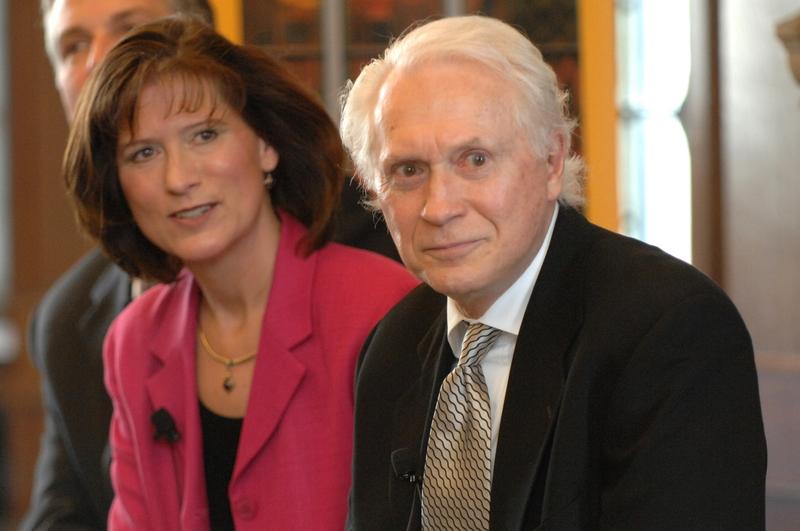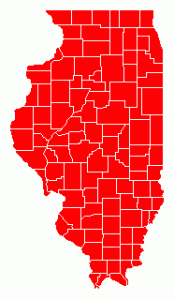Farewell, Judge Terence T. Evans
 One of Marquette’s most distinguished judicial alumni passed away last week. Judge Terence T. Evans ’67 had served since 1995 on the Seventh Circuit Court of Appeals. Before that, he served as a trial judge in federal district court and Milwaukee County Circuit Court.
One of Marquette’s most distinguished judicial alumni passed away last week. Judge Terence T. Evans ’67 had served since 1995 on the Seventh Circuit Court of Appeals. Before that, he served as a trial judge in federal district court and Milwaukee County Circuit Court.
Judge Evans was profiled here in the Marquette Lawyer, along with his Seventh Circuit colleagues Judge John L. Coffey ’48 and Judge Diane S. Sykes ’84. Judge Evans’ Journal Sentinel obituary is here. A webcast of an “On the Issues” conversation he had with Mike Gousha and Judge Sykes is here. (The picture above comes from that exchange.)
I never had the pleasure of meeting Judge Evans in person, but I’ve read many of his opinions. They do have a distinct style and sensibility — once you’ve read a few, you are not likely to mistake an Evans opinion for that of any of his colleagues. The opinions reflect a sharp wit, an eye for the telling factual detail, and a commonsensical approach to judging. I doubt there are many judges on the federal bench whose opinions would be more accessible and engaging for the lay reader.
The Wisconsin Public Defender’s On Point website has collected some wonderful personal reminiscences of Judge Evans here. Among the many notable tributes is one from his former clerk Daniel J. O’Brien ’78, who observed:
No one – NO ONE – enjoyed life more than “The Judge.” Luckily, for those of us privileged to spend time with him, that joie de vivre (borrowed from Judge Easterbrook’s marvelous tribute) was contagious. . . .
The Judge’s skill as a jurist was surpassed only by his warmth as a person. The word “mentor” is far down the list of adjectives describing his impact on my life [Others that come to mind: Marquette recruiting analyst, legal writing tutor (“To be a good legal writer,” he’d often say, “write like a journalist, not a lawyer”), comedian, Brewer fan, role model, expert on “greasy spoon” diners, and friend].
Visitation is today from 4:00 to 8:00 at Feerick Funeral Home, 2015 E. Capitol Dr. Additional parking is across the street at Atwater School and at St. Roberts Catholic Church, which is about one block to the west.


